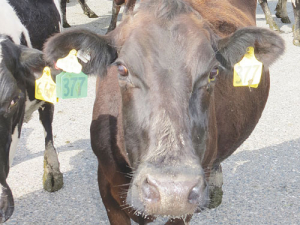State of the Dairy Nation 2024/25: DairyNZ Highlights Record Milk Production and Export Growth
DairyNZ's chief executive Campbell Parker says the 2024/25 dairy season reinforces the importance of the dairy sector to New Zealand.
 The New Zealand dairy industry has shifted to fewer herds with a greater focus on their performance.
The New Zealand dairy industry has shifted to fewer herds with a greater focus on their performance.
New Zealand's dairy sector is evolving, with the latest data showing a shift to fewer herds and a greater focus on their performance.
According to the New Zealand Dairy Statistics 2017-18 report, published by DairyNZ and LIC, there were 11,590 dairy herds last season – 158 fewer than the previous season.
This was the third year of decreasing herd numbers, but the average herd size increased by 17 cows to 431. The total 2017-18 cow population was 4.99 million, an increase of 2.7% from the previous season but still below the peak population of at least 5.01m cows in the 2014-15 season.
DairyNZ senior economist Matthew Newman says despite last year’s challenging spring weather, milk production was only slightly decreased.
Dairy companies processed 20.7 billion litres of milk last season, containing 1.84b kgMS, down 0.6% on the previous season.
“Farmers benefitted from favourable late summer and autumn conditions so a number of the regions were able to milk their herds longer into the new year, which supported reasonable production for the year,” says Newman.
Sharemilking arrangements were down by 44 herds from the previous season. Herds under sharemilking arrangements have declined from 36% in 2008-09 to 27% of herds in 2017-18.
“This movement from sharemilking to contract milking is driven by people wanting the greater certainty of milk income that contract milking provides,” says Newman.
The report also showed a surge in the uptake of herd improvement services, as farmers seek higher performing and more efficient dairy cows through the use of herd testing and artificial breeding (AB).
A total of 71.1% NZ herds were herd tested (8242 herds), up from 64.3% (7557) in 2016-17. Total cows herd tested was 3.62m, up from 3.21m last season and close to the record level of 3.65m in 2014-15.
LIC general manager NZ markets Malcolm Ellis says this reflects a shift to precision agriculture, as farmers work to optimise their systems.
“The days of significant cow growth may be over and we know that farmers are more focused on productivity and efficiency. Without doubt farmers are wanting to know more about the production status of the cows they milk, gain more confidence about their parentage and certainly invest appropriately to breed superior livestock into the future.”
While the number of cows mated to AB had a nominal increase of 1.01%, the number of yearlings mated to AB jumped 17% on the previous season which Ellis says reflects farmers identifying every opportunity to maximise the rate of genetic gain.
Genetic gain is worth upwards of $200m to the NZ dairy sector each year.
Recent weather events in the Bay of Plenty, Gisborne/Tairawhiti, and Canterbury have been declared a medium-scale adverse event.
DairyNZ's chief executive Campbell Parker says the 2024/25 dairy season reinforces the importance of the dairy sector to New Zealand.
A New Zealand agribusiness helping to turn a long-standing animal welfare and waste issue into a high-value protein stream has won the Australian dairy sector's top innovator award.
OPINION: A bumper season all around.
Dairy Women's Network (DWN) has announced that Taranaki dairy farmer Nicola Bryant will join its Trust Board as an Associate Trustee.
Rural Women New Zealand (RWNZ) says it welcomes the release of a new report into pay equity.

OPINION: A mate of yours truly reckons rural Manawatu families are the latest to suffer under what he calls the…
OPINION: If old Winston Peters thinks building trade relations with new nations, such as India, isn't a necessary investment in…